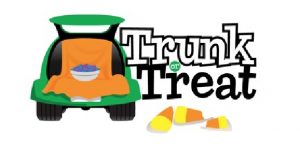Invest in Love

When Christians want to know what the Bible says about money and stewardship and investments, we typically look to the Parable of the Talents in Matthew 25. I cannot tell you how often I have heard this parable used to explain to me how God is displeased when we do not save and invest our money to multiply it. And I have always been troubled by that line of thinking for two reasons:
- There are so many other passages in the Bible that teach us differently. For example, Luke 18 says: Sell everything you have and give to the poor, and you will have treasure in heaven. And that is but one of many!
- The servants who invest their talents don’t just get some interest. They quickly double their investment! It takes many years to double an investment even with a good interest rate. So, there seems to be something unethical or unfair going on in the trading deals the servants are making.
Christians typically read the Parable of the Talents and look poorly upon the servant who hides his talent while exalting the servants who double their money. And the rationale is that the master (read symbolically as God) praises the servants who invest and scolds the servant who does not.
Jesus original Jewish audience would have seen their investment as immoral, illegal, and unethical. In fact, they would have seen the master in this same way. The master admits that he is immoral and unethical, that is, that he reaps where he did not sow. He extracts interest where he should not, and this is a clear violation of Jewish law. See, for example, Leviticus 25:36
Do not take interest in advance or otherwise make a profit from them, but fear your God; let them live with you. You shall not lend them your money at interest taken in advance, or provide them food at a profit.
According to Richard L. Rohrbaugh (prof of Christian Studies Emeritus at Lewis and Clark College):
[To ancient Mediterranean cultures,] seeking “more” was considered morally wrong. Because the pie was “limited” and already all distributed, anyone getting “more” meant someone else got less. Thus honorable people did not try to get more, and those who did were automatically considered thieves: To have gained, to have accumulated more than one started with, is to have taken the share of someone else.
We don’t typically see things this way today (even though we know it is true at least in part – if we each have a piece of pie and you want more, then you have to take some of mine in order to get more). Ancient people understood this. Resources were scarce. There often wasn’t enough to go around, and folks knew that to get more meant someone else went without. This line of thinking leads one to see that the master and the first two slaves act with dishonor; he is immoral and unethical. In contrast, the third servant acts in an honorable way.
However, the parable also have some dishonorable things to say about the third servant. He admits that his actions were out of fear – not justice or righteousness. And so, at the end of the day, no one in this parable is really all good or all righteous! Every character is flawed in some way. And maybe that is the point…
You see, when we read Matthew 25 as a whole we hear Jesus tell three parables that paint a picture of how the kingdom of God is different from the kingdom of the world. These parables work together. The first two (the Parable of the Bridesmaids and the Parable of the Talents) describe how the world works and the third (the Parable of the Sheep and Goats) describes how the kingdom of God works. Together, the parable work like this:
- (Intro) Jesus says: Let me tell you a story about the kingdom of heaven. (Matthew 25:1a)
- (Act 1) The way the world works is like these bridesmaids and bridegroom. It’s a struggle of who has and who doesn’t, of who is in and who is out.
- (Act 2) Because the world is like these three servants and their master. They are all flawed. Some act out of selfishness and some act out of fear.
- (Act 3) But God’s kingdom is like this story of sheep and goats. When you serve the least, then you serve Christ, and those who do so will be welcomed into God’s kingdom.
The Greek language of these parables lends perfectly to this kind of interpretation. If you want more details about this interpretation of Matthew 25, read more about this interpretation of Matthew 25 in our 2017 sermon series called Because.
So, the Parable of the talents actually shows us characters struggling with money and selfishness and fear. And the conclusion of Jesus teaching in Matthew 25 gives us a way to respond to the selfishness and fear that grip our lives: Be a sheep! That is, treat other people just as you would treat Christ. In other words, invest not in profit. Invest in love.
Did You Miss Sunday’s Message?
Read or listen to Sunday’s message Back in the Day: Our Daily Bread – Exodus 16
Mission: Clean-Up Buckets
don’t forget to donate for our Hurricane Relief efforts. Flood clean-up buckets are needed! The items for the buckets are:
- One five-gallon bucket with resealable lid (If bucket has been used, clean well but do not use if it has held chemicals of any kind.)
- Four scouring pads
- Seven sponges, including one large
- One scrub brush
- Eighteen reusable cleaning towels (e.g. Easy Wipes)
- One 50 oz. or two 25 oz. bottle(s) of liquid laundry detergent
- One 16-28 oz. bottle of liquid disinfectant dish soap
- One 12-16 oz. bottle of household cleaner that can be mixed with water (no spray bottles)
- One package of 48-50 clothespins
- Clothesline, two 50 ft. or one 100 ft.
- Five dust masks
- Two pairs heavy-duty, waterproof dishwashing gloves (latex-free, non-surgical)
- One pair work gloves, cotton with leather palm or all leather
- 24-28 heavy duty or contractor type 30-45 gallon trash bags on a roll and removed from carton
- One 6-9 oz. bottle of non-aerosol insect repellent
All cleaning items must be new – all liquid items must be capped and securely tightened. Place all items into the bucket, making sure they are packed securely to avoid damage during shipment. Snap the lid on tight and seal with packing tape.
All items are due on Sunday, October 7th.
 Homecoming 2018
Homecoming 2018
Sunday, October 21
10:30 am – Coffee & Donuts Fellowship Time
11:00 am – Homecoming Worship
12:00 noon – Covered Dish Lunch
Make plans to attend our Homecoming Services this year, bring a neighbor or a friend, and invite any family or friends to come back and join us for the special service and reuniting with one another and Christ.
 Trunk or Treat/Fall Celebration
Trunk or Treat/Fall Celebration
Sunday, October 28th, 4:00 -6:00 pm
Bring your car, add some Fall decorations, and greet the children in our community for our Trunk or Treat/Fall Celebration; we are collecting bags of candy and prizes for games for this event in the hallway next to the office; we also need folks to sign up to bring their cars and open their trunks with goodies, we also serve Robie’s famous chili…it’s gonna be a fun night for all ages!
This Week at Hood
Tuesday, October 2 – Pastor Jason at Regional Office in Wilson, NC
Wednesday, October 3 – 1:30 – 2:30 pm – Prayer & Inspiration Small Group
Wednesday, October3, 6:00 pm – Choir Practice
Thursday, October 4 – 10:00 am – 1:00 pm – Clean-Up Workday at Hood
Thursday, October 4, 1:00 – 3:00 pm – Drop in Coffee & Conversation with Pastor Jason at the Cellar (108 N Wilson Ave.)
Thursday, October 4 – 6:30-7:30 pm – Thursday Evening Small Group
Sunday, October 7, 11:00 am – Worship – Back in the Day Series continues


